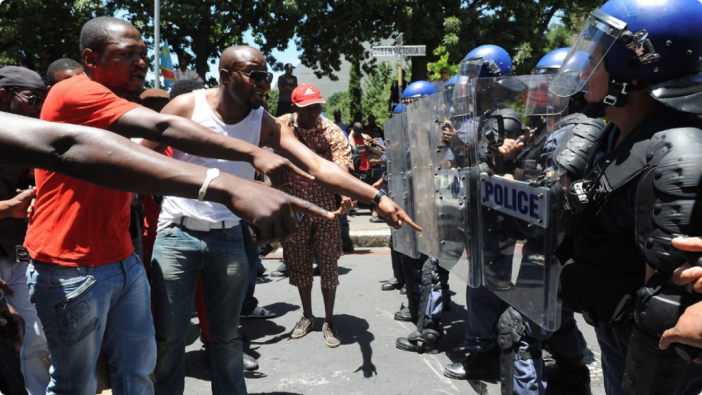Human Rights Watch South Africa says while the country has strong human rights laws in place, implementation remains “problematic”.
Human Rights Watch launched their annual report in Rosebank, Johannesburg, on Wednesday.
It reported that South Africa continued to face a number of human rights challenges, particularly in terms of its treatment of refugees, asylum-seekers and migrants, adding that government had struggled to stop attacks on the homes and businesses of foreign nationals.
Human Rights Watch (HRW) senior researcher for Zimbabwe and Southern Africa, Dewa Mavhinga, said the NGO wanted a strong response from government in terms of what steps would be taken to ensure that these attacks would stop – especially in terms of xenophobia, hate speech and racism.
“Even the media… has a polarised approach, with their debates only scratching the surface and not talking about the true issues,” Mavhinga said.
South African government officials, as well as traditional leaders, were accused of not handling the xenophobic attacks in early 2015, which displaced an estimated 2 400 people.
“Statements by traditional leaders and government officials may have fuelled the violence,” he said.
This was a reference to Zulu King Goodwill Zwelithini’s statement to the media that foreigners “should pack their bags and go home”.
“The government did not publicly and unambiguously condemn Zwelithini’s reckless and inflammatory statements,” the researcher said.
Although 22 people were arrested by the police following the violence, HRW felt authorities did not thoroughly investigate or successfully prosecute those involved.
Police brutality also a concern
Police brutality was also a topic of concern.
“Serious concerns remained about the conduct and capacity of the South African Police Service (SAPS). A number of incidents in 2015 highlighted police brutality and the use of excessive and disproportionate force,” he said.
The Farlam Commision of Inquiry into the deaths of 44 people at Marikana in August 2012 was also discussed.
“Some civil society groups and the families of deceased and injured mineworkers were disappointed by the commission’s findings. They said the commission ignored key evidence presented by mineworkers who testified, and instead relied heavily on police description of the events,” said Mavhinga.
President Jacob Zuma came under fire for his handling of the 2014 report by Public Protector Thuli Madonsela about his alleged misuse of state funds for a security upgrade at his private residence in Nkandla, KwaZulu-Natal.
The organisation also went on to criticise government’s failure to realise the right to education for an estimated half a million children with disabilities. It had failed people with disabilities, HRW said.
It was also added that, although the government had adopted a policy of providing inclusive education for all children with disabilities in 2001, key aspects of the policy had not been implemented.
Disabled segregated
“The majority of the limited budget for learners with disabilities is allocated to special, segregated schools rather than to inclusive education.”
However, Human Rights Watch believed the country had made strides in terms of the protection of lesbian, gay, bisexual and transgender (LGBT) people.
It said the department of justice and constitutional development had taken significant steps to improve co-ordination between government and civil society in combating violence (including rape and murder) against lesbians and transgender men.
However, the failure by South Africa to arrest President Omar al-Bashir in June 2015 after warrants for his arrest had been issued by the International Criminal Court (ICC) was viewed as a major disappointment.
Bashir was visiting the country at the time. The ANC said later that government would withdraw the country from the ICC – a move largely criticised by human rights defenders and civil society groups.
Human Rights Watch said South Africa should not withdraw from the ICC. News24






 WhatsApp us
WhatsApp us 

